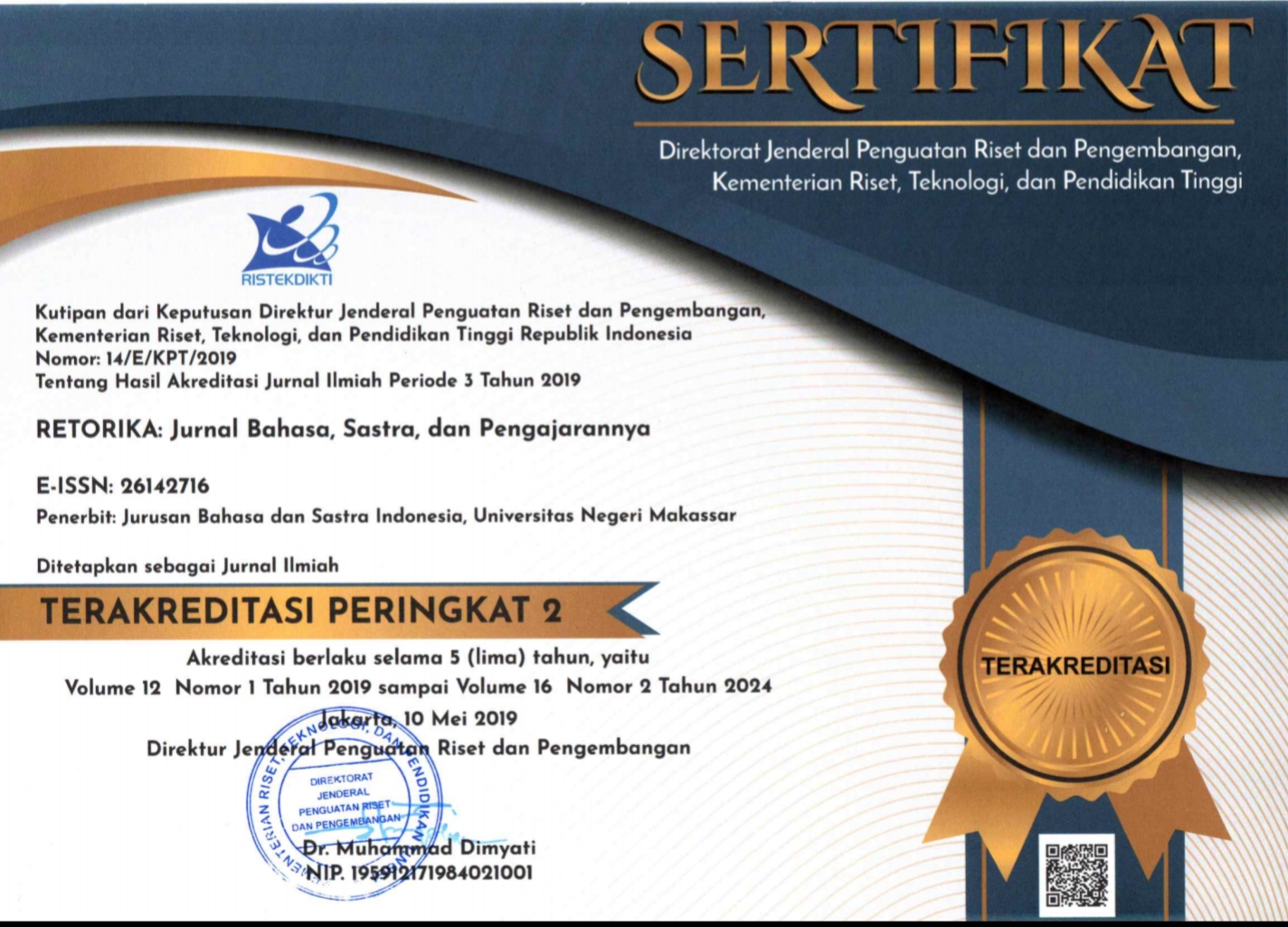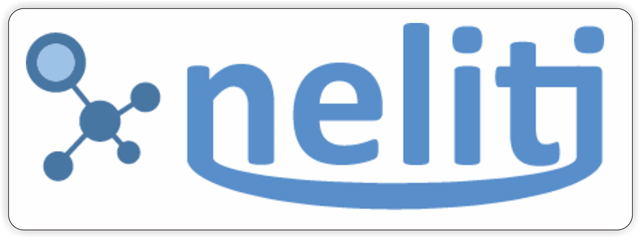MEANING-FOCUSED INSTRUCTION (MFI) VS. FORM-FOCUSED INSTRUCTION (FFI): METAREFLECTION ON BIPA GRAMMAR LEARNING
(1) Universitas Muhammadiyah Malang
(2) Universitas Muhammadiyah Malang
(3) Universitas Muhammadiyah Malang
(*) Corresponding Author
DOI: https://doi.org/10.26858/retorika.v16i2.43283
Abstract
Keywords
Full Text:
PDFReferences
Aziz, I.N. & Dewi, Y.A.S. (2019). The Implementation of Contextual Teaching and Learning on English Grammar Competence. Alsuna: Journal of Arabic and English Language, 2(2), pp. 67–95. doi:10.31538/alsuna.v2i2.392.
Basturkmen, H. (2012). Review of Research Into the Correspondence Between Language Teachers’ Stated Beliefs and Practices. System, 40(2), pp. 282–295. doi:10.1016/j.system.2012.05.001.
Burgess, J. & Etherington, S. (2002). Focus on Grammatical Form: Explicit or implicit?. System, 30(4), pp. 433–458. doi:10.1016/S0346-251X(02)00048-9.
Farrell, T.S.C. & Bennis, K. (2013). Reflecting on ESL Teacher Beliefs and Classroom Practices: A Case Study. RELC Journal, 44(2), pp. 163–176. doi:10.1177/0033688213488463.
Farrell, T.S.C. & Ives, J. (2015). Exploring Teacher Beliefs and Classroom Practices Through Reflective Practice: A Case Study. Language Teaching Research, 19(5), pp. 594–610. doi:10.1177/1362168814541722.
Genc, G., Kulusakli, E., & Aydin, S. (2016). Exploring EFL Learners’ Perceived Self-Efficacy and Beliefs on English Language Learning. Australian Journal of Teacher Education (Online), 41(2), 53–68.
Graus, J. & Coppen, P.A. (2018). Influencing Student Teacher Grammar Cognitions: The Case of the Incongruous Curriculum. Modern Language Journal, 102(4), pp. 693–712. doi:10.1111/modl.12510.
Incecay, V. & Dollar, Y.K. (2011). Foreign Language Learners’ Beliefs About Grammar Instruction and Error Correction. Procedia-Social and Behavioral Sciences, 15, pp. 3394–3398. doi:10.1016/j.sbspro.2011.04.307.
Loewen, S. & Sato, M. (2018). Interaction and Instructed Second Language Acquisition.. Language Teaching, 51(3), pp. 285–329. doi:10.1017/S0261444818000125.
Mart, Ç.T. (2013). Teaching Grammar in Context: Why and how?. Theory and Practice in Language Studies, 3(1), pp. 124–129. doi:10.4304/tpls.3.1.124-129.
Rahman, M.M., Singh, M.K.M. & Pandian, A. (2018) ‘Exploring ESL Teacher Beliefs and Classroom Practices of CLT: A Case sSudy. International Journal of Instruction, 11(1), pp. 295–310. doi:10.12973/iji.2018.11121a.
Razfar, A. (2012). Narrating Beliefs: A Language Ideologies Approach to Teacher Beliefs. Anthropology and Education Quarterly, 43(1), pp. 61–81. doi:10.1111/j.1548-1492.2011.01157.x.
Richards, J.C. (2002). 30 Years of TEFL/TESL: A Personal Reflection. RELC Journal, 33(2), pp. 1–35.
Van Vooren, V., Casteleyn, J. & Mottart, A. (2012). The Impact of Teachers’ Beliefs on Grammar Instruction and Students’ Grammar Competences. Procedia-Social and Behavioral Sciences, 69(Iceepsy), pp. 641–648. doi:10.1016/j.sbspro.2012.11.456.
Yaccob, N.S. & Yunus, M.M. (2019). Language Games in Teaching and Learning English Grammar: A Literature Review. Arab World English Journal, 10(1), pp. 209–217. Available at: https://medium.com/@arifwicaksanaa/pengertian-use-case-a7e576e1b6bf.
Yousef Abduh, M. & Algouzi, S. (2020). Revisiting Grammar Teaching in a Saudi EFL Context: Teachers’ Perceptions and Practices. Arab World English Journal, 11(4), pp. 291–306. doi:10.24093/awej/vol11no4.19.
Zheng, D., Young, M. F., Brewer, R. A., & Wagner, M. (2009). Attitude and Self-Efficacy Change: English Language Learning in Virtual Worlds. CALICO Journal, 27(1), 205-231, pp. 205–231. doi:10.11139/cj.27.1.205-231.
Article Metrics
Abstract view : 142 times | PDF view : 44 timesRefbacks
- There are currently no refbacks.
Copyright (c) 2023 Fida Pangesti Pangesti

This work is licensed under a Creative Commons Attribution-NonCommercial 4.0 International License.
Published by:
Department of Indonesian Language, Faculty of Languages and Literature, Universitas Negeri Makassar in cooperate with Asosiasi Dosen Bahasa dan Sastra Indonesia (ADOBSI) and Ikatan Program Studi Pendidikan Bahasa dan Sastra Indonesia (IKAPROBSI).
Address: Department of Indonesian Language Office, DG Building Second Floor, UNM Parangtambung, Daeng Tata Raya Street, Makassar, South Sulawesi, Indonesia
 Email: retorika@unm.ac.id
Email: retorika@unm.ac.id

RETORIKA: Jurnal Bahasa, Sastra,dan Pengajarannya is licensed under a Creative Commons Attribution-NonCommercial 4.0 International License.
















